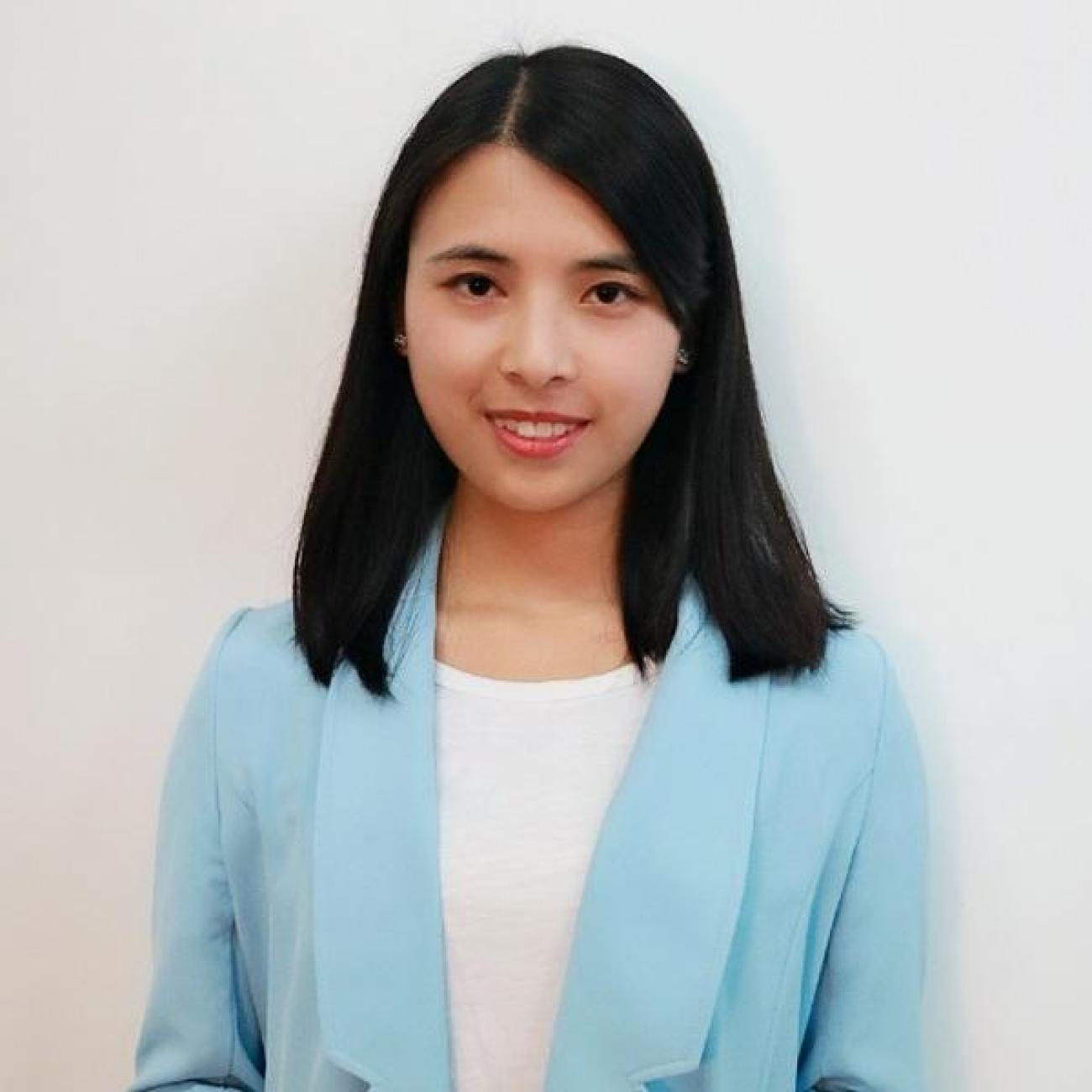About
Dr Chengchen Zhang is currently a Lecturer (aka Assistant Professor, 2023/09-x) in the Digital Health & Biomedical Engineering Group (DHBE), which is a part of the School of Electronics and Computer Science (ECS) at the University of Southampton, UK. Dr Zhang was awarded the 2023 Newton International Fellowship from the Royal Society, UK.
Before joining Southampton, Dr Zhang finished her PhD study (05/2019-12/2022, Supervisor: Prof. Kourosh Kalantar-Zadeh) and the Postdoc training (11/2022-07/2023, Supervisor: Prof. Ewa Goldys), at the University of New South Wales (UNSW), Australia. Dr Zhang has published over 20 peer-reviewed articles in highly prestigious journals including ACS Nano, Advanced Functional Materials, Small, Chemistry of Materials, ACS Applied Materials Interfaces, and Applied Materials Today. Her works have been cited >700 times (h index = 16, based on the source of Google Scholar.)
Dr. Zhang's research group aims to tackle the challenges in health monitoring and therapeutics by harnessing the unique properties of nanomaterials and the power of artificial intelligence (AI).
Fields of Expertise:
- Exploring the distinctive physical and chemical properties of liquid metal-based nanomaterials for disease therapy and health monitoring.
- Developing highly sensitive point-of-care devices for rapid disease diagnosis.
- Formulating polymeric drug delivery systems for precise control and sustained release of therapeutic agents.
Research Grants
- 2024/10-2025/12 Industrial Collaborative Research Grant, Chengdu RunWu Precision Instrument Equipment Co., Ltd, China. Lead PI
- 2024/03-2026/03 International Exchanges 2023 (IEC\NSFC\233339, £12,000). The Royal Society, UK. Lead PI
- 2024/03-2025/09 Royal Society Research Grant (RG\R1\241228, £70,000). The Royal Society, UK. Lead PI
- 2023/09-2025/08 Start-up and Seed Fundings, University of Southampton, UK. Lead PI
- 2023/08 Awarded the Newton International Fellowship (NIF\R1\231027, £420,000), The Royal Society, UK. (Declined due to taking the Lecturer Position at the University of Southampton)
- 2022/02 Awarded the Development and Research Training Grant (DTRG), University of New South Wales, Australia
Editorial and Review Activities
- Associate Editor of Health Nanotechnology (2024/02-present)
- Guest Editor of RSC Materials Advances for the theme collection “Material and device design for healthcare monitoring and therapeutics.” (2023/09-present)
- Review Editor of Frontiers in Bioengineering and Biotechnology on “Biomaterials” (2023/07-present)
- Guest Editor of Biosensors for the special issue on “Enzyme-assisted Point-of-Care Testing (POCT) for the ultra-sensitive diagnosis” (2023/02-2023/09)
- Review Editor of Frontiers in Medical Technology on “Diagnostic and Therapeutic Devices” (2022/11-present)
- Regular Reviewer for International Journals: ACS Applied Materials & Interfaces, Research, Journal of Nanobiotechnology, Scientific Reports, Frontiers in Bioengineering and Biotechnology, Biosensors, etc.
Talks & Media Highlights
- 2024/06 14th International NanoMedicine Conference, Sydney, Australia (Invited Speaker)
- 2023/11 BRC Science Forum, NIHR Southampton Biomedical Research Centre, Southampton, UK (Invited Speaker)
- 2023/07 45th Annual International Conference of the IEEE Engineering in Medicine and Biology Society (IEEE-EMBC 2023), Sydney, Australia (Invited Speaker)
- 2023/06 13th International NanoMedicine Conference, Sydney, Australia(Oral Speaker, Best Oral Presentation Award)
- 2022/12 Centre for Nanoscale BioPhotonics (CNBP)/Biofocus Seminar, GSBmE, UNSW, Sydney, Australia (Invited Speaker)
- 2022/11 NanoWerk: Dense nanoparticles slow down cells' movements.
- 2022/07 2022 RACI National Congress, Brisbane, Queensland, Australia (Poster Speaker)
- 2022/05 2022 MRS Spring Meeting, Hawai’i, Honolulu, USA (Poster Speaker; Best Poster Award)
Organized Academic Conferences
- 2023/01-2023/07 Publicity Committee Member, 45th Annual International Conference of the IEEE Engineering in Medicine and Biology Society (IEEE-EMBC 2023, July 24-28, 2023, Sydney, Australia)
- 2019/01−2019/05 Conference Co-Chief Secretary, The 13th IEEE-EMBS International Summer School and Symposium on Medical Devices and Biosensors & The 11th International School and Symposium on Biomedical and Health Engineering (MDBS-BHE 2019, Sep 28-29. 2019, Chengdu, China)
- 2017/10−2018/06 Conference Chief Secretary, 2018 International Conference of Biomedical Information Perception & Microsystems (ICBIPM2018, June 13-15, 2018, Chengdu, China)
Members of Research Societies
- NIHR Southampton Biomedical Research Centre (Southampton, UK) (2023/09-present)
- Institute for Life Sciences (University of Southampton, UK) (2023/09-present)
- Institute of Electrical and Electronics Engineers (IEEE, USA) (2022/11-present)
- IEEE in Medicine and Biology Society (IEEE EMBS, USA) (2022/11-present)
- IEEE Women in Engineering (IEEE WIE, USA) (2022/11-present)
- IEEE Young Professionals (IEEE YP, USA) (2022/11-present)
- IEEE Sensors Council, USA (2022/11-present)
- IEEE Nanotechnology Council, USA (2022/11-present)
- Materials Research Society (MRS, USA) (2022/07-2023/06)
- ARC Centre of Excellence for Nanoscale Biophotonics (CNBP, Australia) (2022/06-2023/07)
- Royal Australian Chemical Institute (RACI, Australia) (2021/02-2022/05)
- Australian Centre for NanoMedicine (ACN, Australia) (2019/05-2023/07)
You can update this in Pure (opens in a new tab). Select ‘Edit profile’. Under the heading and then ‘Curriculum and research description’, select ‘Add profile information’. In the dropdown menu, select - ‘About’.
Write about yourself in the third person. Aim for 100 to 150 words covering the main points about who you are and what you currently do. Clear, simple language is best. You can include specialist or technical terms.
You’ll be able to add details about your research, publications, career and academic history to other sections of your staff profile.
